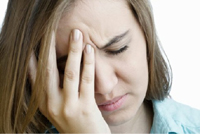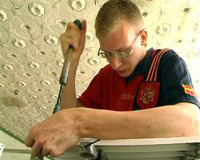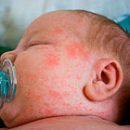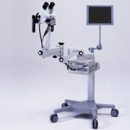Many noticed that in the elderly, a person behaves completely differently as in his youth. Sometimes it can be a sign of psyche disorders that sometimes occur in the elderly. Read more about such disorders in the article.
Content
The presence of good mental health throughout life does not provide immunity to mental disorders in elderly and old age. Mental diseases of the elderly occur significantly more often than people of young and middle age. So according to the World Health Organization among the elderly, 236 out of 100 thousand population suffer from mental illness, while in the age group from 45 to 64 years old - only 93. However, one should not think that old age is inevitably connected with the deterioration of health, including the mental. Many late age diseases can be cured. It is important to be attentive to yourself and your elderly relatives and in time to contact the doctor.
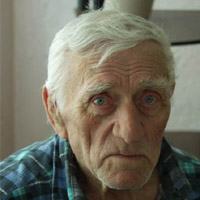 Meanwhile, the oldest people turn to psychiatrists and psychotherapists twice as much as the population as a whole. People over 60 often do not notice their mental disorders or consider them as an inevitable result of aging. Unfortunately, this is a completely improper attitude and relatives who are all explained by old age and think that nothing can be done anyway.
Meanwhile, the oldest people turn to psychiatrists and psychotherapists twice as much as the population as a whole. People over 60 often do not notice their mental disorders or consider them as an inevitable result of aging. Unfortunately, this is a completely improper attitude and relatives who are all explained by old age and think that nothing can be done anyway.
A characteristic feature of psychopathological disorders in the elderly and old age is the phenomenon of somatization, that is, the physical expression of mental disorders. Such patients are asking for help from general profile doctors, which can not always recognize mental disorders in older patients, especially if it concerns depressive disorders and light memory disorders and thinking.
Do not pass by noticeable changes in the behavior or mood of your elderly relatives. These changes may be symptoms of depression and other disorders. Many elderly diseases are accompanied by mental disorders, and a psychiatrist's assistance is also needed. Proper treatment can lead to improved state and return an elderly person to a full-fledged happy life.
In elderly patients, various manifestations of neuroses are widely represented, on the basis of which, above all, the defeat of the brain vessels. Characterized complaints about the feeling of gravity in the head, noise and ringing in the ears, dizziness, stepping when walking or getting up with bed, increasing fatigue even with small exercise. There is a need for day rest. Patients become irritable, impatient, poorly carry noise, tears appear in front of the eyes, there is a decrease in memory, a dream is disturbed. Assistance in such cases is usually carried out outpatient.
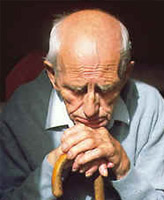 The most common mental violation of old age - depression. The mood is reduced, characterized by the increasing feeling of longing or anxiety, there is a feeling of unnecessaryness, hopelessness, helplessness, unreasonable guilt, loss of interest in old beloved activities, family, friends, work.
The most common mental violation of old age - depression. The mood is reduced, characterized by the increasing feeling of longing or anxiety, there is a feeling of unnecessaryness, hopelessness, helplessness, unreasonable guilt, loss of interest in old beloved activities, family, friends, work.
Reducing mental performance, which is based on the inability to concentrate attention, worsening memory and the total disorganization of mental processes, can also be a manifestation of depression.
Depression may have somatic manifestations: loss or, on the contrary, strengthening appetite, insomnia or drowsiness, constant fatigue, constipation, pain, which cannot be explained by any disease.
If you have noticed any of your loved ones, some of your listed symptoms, and they hold over two weeks - you need to seek help from a specialist. Modern psychiatry has a wide range of funds for the successful treatment of depression, and a timely manner has the treatment will almost certainly return to human health.
If there are thoughts about death or suicide, help is needed urgently! If your relative refuses to consult a doctor on your own, insist and feel free to resort to unscrupulous measures. When trying to suicide - call ambulance.
Dementia is a noticeable reduction in the level of intelligence associated with various brain diseases. At the same time, there is a decrease in memory leading to disorientation in the surrounding, confusion, the inability to perform even the simplest intelligent operations. Such patients do not remember where they live can get lost on the street. In severe cases, self-service skills are destroyed: patients can not wash themselves, get dressed, lose the skills of eating and adhere to personal hygiene.
The cause of dementia in the elderly and old age is most often vascular diseases (hypertensive disease, lesion of brain vessels, heart disease, and t.NS.) and cerebral diseases, most often this is Alzheimer's disease.
Effective treatment of dementia has not yet been found, but in many cases it is possible to achieve a significant slowdown in the process, so it is important to start treatment as early as possible. And, of course, such patients need to be careful and attention from their loved ones.
Pseudo-degeneration call reversible mental disorders that look outwardly like dementia. The patient with the manifestations of Dementia is very important to show a specialist who will hold a thorough medical examination of both mental and somatic state. If the symptoms of dementia are associated with some other factors, their elimination leads to improved state and recovery.
For example, patients with depression can sometimes resemble dementant patients. Plunging into your experiences, they look unreleased from the surrounding, can not concentrate, are lost in conversation. However, depression can be cured, and with her will leave the symptoms of dementia.
What age of an elderly person can be called critical for manifestations of mental disorders? Follow the mental health of their elderly relatives. At any age, a person, including the elderly, can and should feel healthy.




